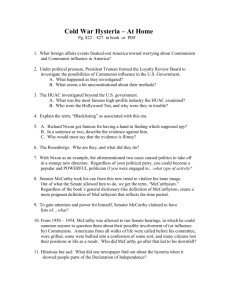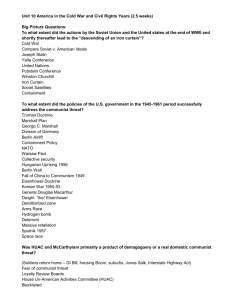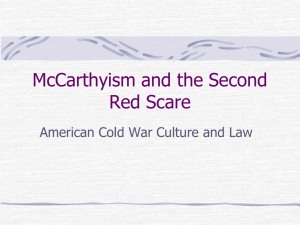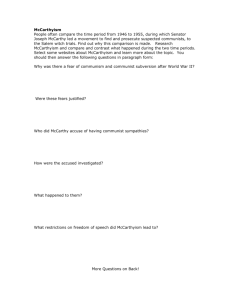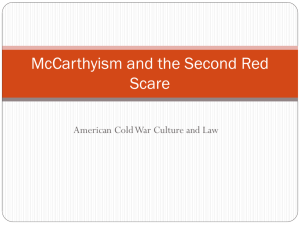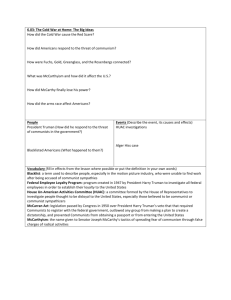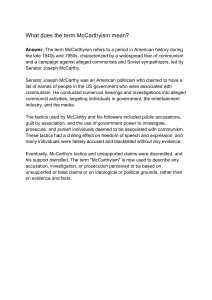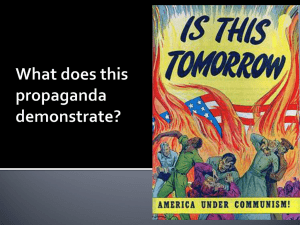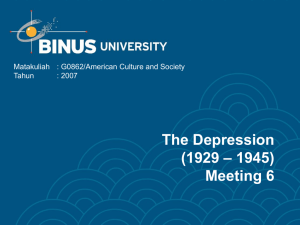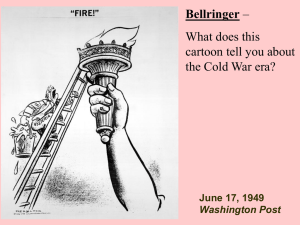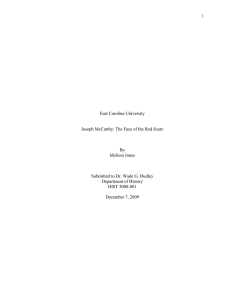McCarthyism
advertisement
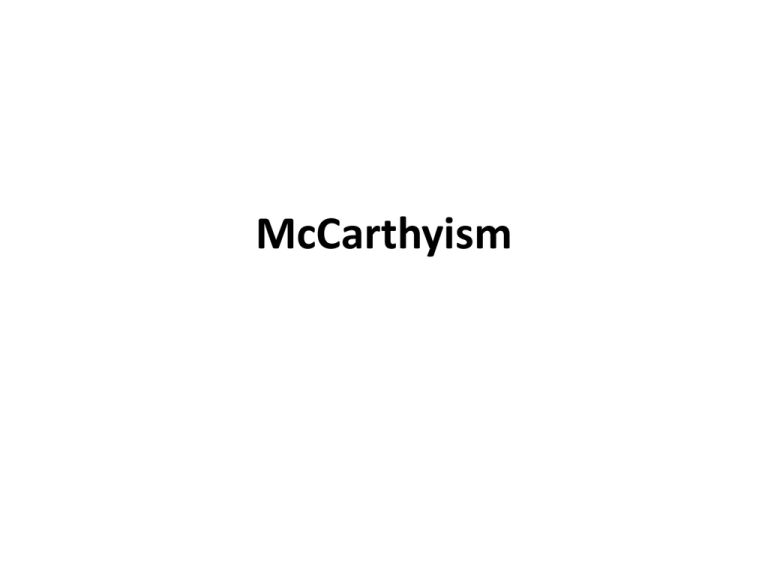
McCarthyism Joseph McCarthy • Senator Joseph McCarthy of Wisconsin begins witch hunt for communists in government positions • “I have here in my hand a list of 205 that were known to the Secretary of State as being members of the Communist party and who, nevertheless, are still working and shaping the policy of the State Department” McCarthyism • McCarthy began a series of attacks on Democrats, left-leaning government workers and anyone he deemed, in his own judgment, to be a communist sympathizer • The numbers of people on his lists were always fluctuating wildly and were also not shown to anyone as evidence • At first treated as a crude outsider by the Republican party, as the public demand for headlines increased, they embraced him McCarthyism • McCarthy goes so far as to accuse George Marshall, the architect of postwar Europe, of being an agent of communism • Eisenhower refuses to defend Marshall, the driving force behind his fast-track career, at the 1952 Republican National convention (Why would Eisenhower do this?) • After using McCarthy and his rhetoric to win the Presidency in 1952, the Republicans abandon him McCarthyism 1. 2. 3. 4. 4 reasons why McCarthyism was effective: The legitimate but greatly exaggerated concern about atomic spies An undercurrent of anti-Semitism and nativism because labor organizers and communist party members had Jewish and Eastern European backgrounds Southern and Western dislike of Ivy League elites It was reassuring if Soviet and Chinese successes were the result of American traitors rather than communist strengths Results of the Early Cold War • Both sides enjoyed renewed vigor from economic and diplomatic gains • They didn’t need to have a hot war because they were getting what they want • For U.S.S.R., it was the Eastern Bloc • For U.S., it was strengthening NATO countries and Japan while solidifying itself as a superpower both politically and militarily
